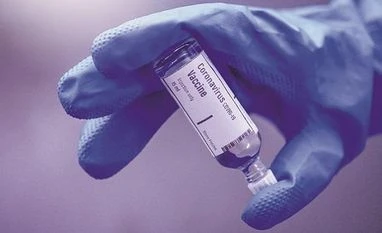Ready to offer Covid-19 vaccine to UN staff, offices free of cost: Russia
Russia is sure that all capacities of the global pharmaceutical industry need to be employed so as to provide free access to vaccination for the population in the foreseeable future, Putin remarked
)
Russia is ready to offer its 'Sputnik V' COVID-19 vaccine free of charge for voluntary vaccination of the staff of United Nations (UN) and its offices and the country will soon hold a virtual conference for those nations keen in cooperation in the development of anti-coronavirus vaccines, said Russian President Vladimir Putin.
Delivering his remarks through a pre-recorded video for the 75th session of the UN General Assembly on Tuesday, Putin described the 'Sputnik V' vaccine, the world's first coronavirus vaccine, as "safe, reliable and effective". He said the Russian government is ready to share experience and continue collaborating with countries and international entities including the supply of the 'Sputnik V' vaccine.
"Building on the scientific, industrial and clinical experience of its doctors Russia has promptly developed a range of test systems and medicines to detect and treat the coronavirus, as well as registered the world's first vaccine, Sputnik V," he said.
"I would like to reiterate that we are completely open to partner relations and willing to cooperate. In this context, we are proposing to hold an online high-level conference shortly for countries interested in cooperation in the development of anti-coronavirus vaccines," he added.
Russia is sure that all capacities of the global pharmaceutical industry need to be employed so as to provide free access to vaccination for the population of all states in the foreseeable future, Putin remarked.
Also Read
"We are ready to share experience and continue cooperating with all states and international entities, including in supplying the Russian vaccine which has proved reliable, safe and effective, to other countries," he said.
Underlining that the world is experiencing a whole new challenge due to the coronavirus pandemic, the Russian President stressed the need for new innovative solutions to revive the global economy which has taken a hit due to the crisis.
"Experts are yet to fully assess the scale of the social and economic shock caused by the pandemic and all its long-term consequences. However, it is already evident that it will take a really, really long time to restore the global economy. Furthermore, even proven anti-crisis measures will not always work. We will need new innovative solutions," he said.
He added, "Russia is ready to provide the UN with all the necessary qualified assistance, in particular, we are offering to provide our vaccine, free of charge, for the voluntary vaccination of the staff of the UN and its offices. We have received requests from our UN colleagues in this respect, and we will respond to those."
Putin outlined Russia's active contribution to global and regional counter-COVID-19 efforts, saying the country provided assistance to most affected nations both bilaterally and within multilateral formats.
He called on the need to "qualitatively strengthen" the capability of the World Health Organisation (WHO).
"...We first of all take into account the central coordinating role of the WHO, which is part of the UN system. We believe it essential to qualitatively strengthen WHO capability. This work has already begun, and Russia is genuinely motivated to engage in it," the Russian President remarked.
Calling for reforms of the UN Security Council in the backdrop of a "complicated, multipolar and multidimensional" world, Putin said the body should be more inclusive of the interests of all countries.
"Our logic is that the Security Council should be more inclusive of the interests of all countries, as well as the diversity of their positions, base its work on the principle of the broadest possible consensus among states and, at the same time, continue to serve as the cornerstone of global governance, which cannot be achieved unless the permanent members of the Security Council retain their veto power," he said.
Putin stated that Russia is mulling to hold an in-person G5 summit in the future and said "many partners" have backed the initiative.
"It would aim at reaffirming the key principles of behaviour in international affairs, elaborating ways to effectively address today's most burning issues. It is encouraging that our partners have supported the initiative. We expect to hold such summit - in person - as soon as the epidemiological situation makes it possible," he further said.
(Only the headline and picture of this report may have been reworked by the Business Standard staff; the rest of the content is auto-generated from a syndicated feed.)
More From This Section
Don't miss the most important news and views of the day. Get them on our Telegram channel
First Published: Sep 23 2020 | 3:00 PM IST
